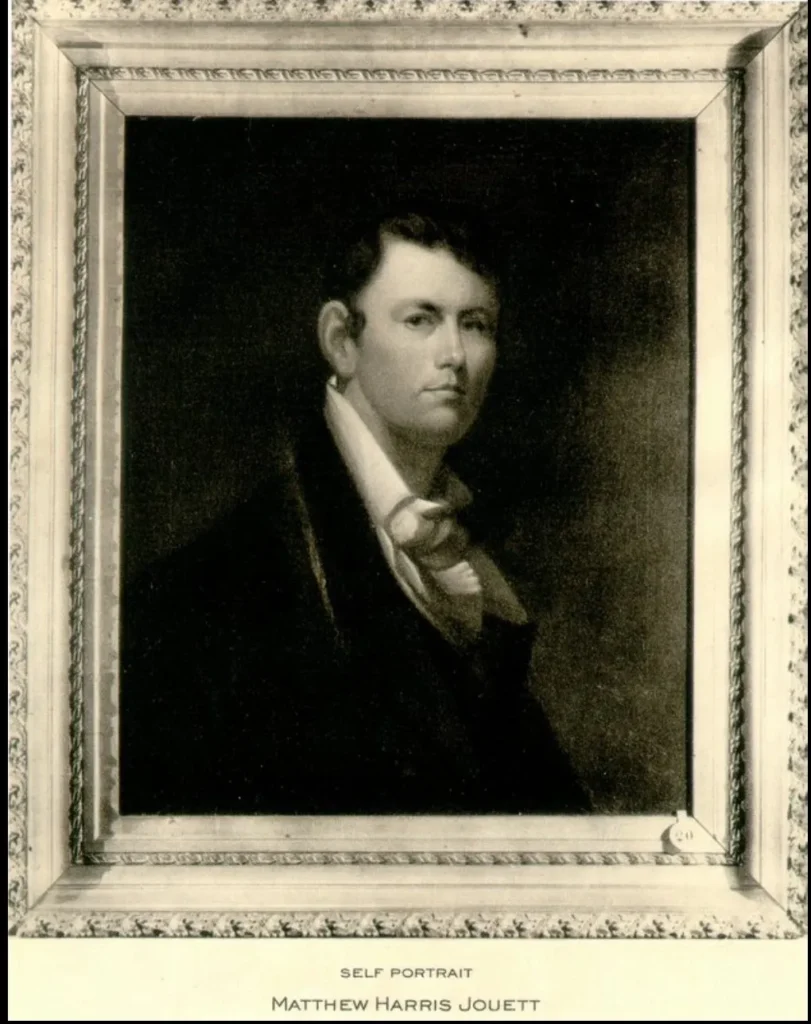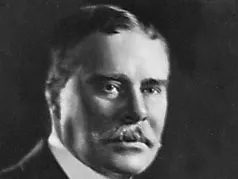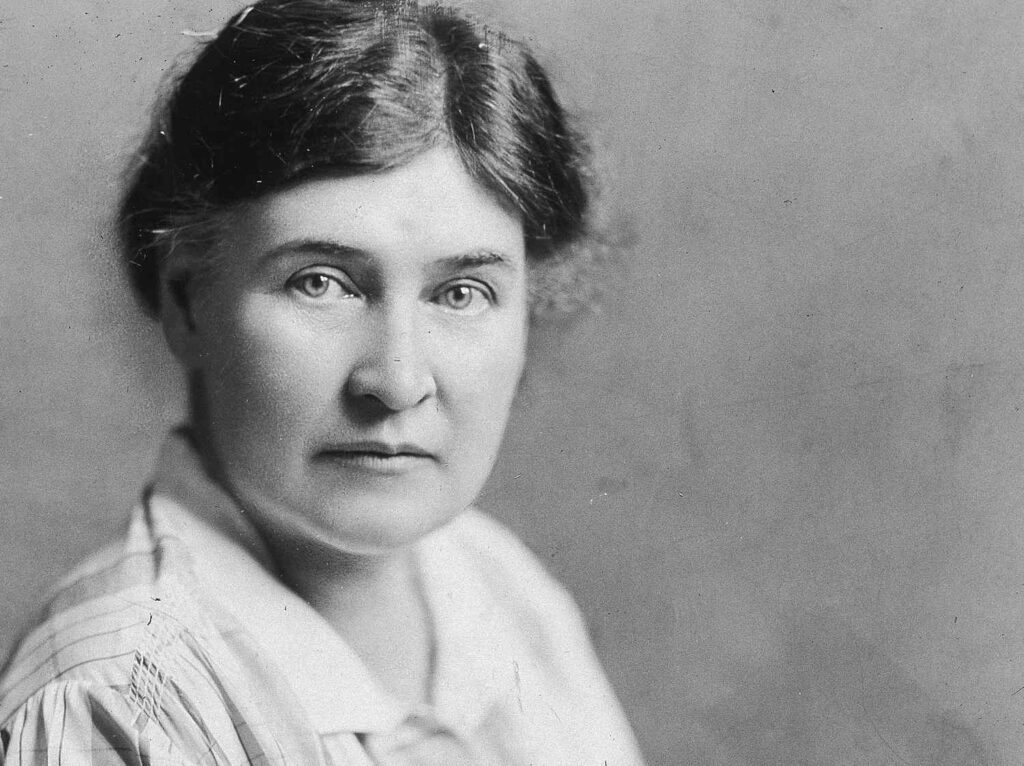December 7th
December 7th Holidays
1. Armed Forces Flag Day (India)

Armed Forces Flag Day, celebrated on December 7th in India, is a special occasion dedicated to honoring the sacrifices of the Indian Armed Forces. First observed in 1949, the day serves to raise funds for the welfare of ex-servicemen and their families. The Indian government encourages people to contribute by purchasing flags, which symbolize support for the armed forces. The day also provides an opportunity to recognize the courage and dedication of soldiers who safeguard the nation’s security. The funds collected are used for their rehabilitation, healthcare, and educational needs.
2. International Civil Aviation Day

International Civil Aviation Day is celebrated on December 7th to recognize the importance of aviation in global connectivity and the advancement of the aviation industry. The day highlights the role of the International Civil Aviation Organization (ICAO) in promoting safe, secure, and efficient air travel. It serves as an opportunity to reflect on how civil aviation enhances economic growth, trade, tourism, and cultural exchange, while emphasizing sustainability and the industry’s commitment to reducing environmental impacts. It is observed through events and activities that celebrate the achievements of aviation worldwide.
3. National Pearl Harbor Remembrance Day (United States)

National Pearl Harbor Remembrance Day in the United States, observed on December 7th, honors the lives lost during the 1941 attack on Pearl Harbor by the Japanese military. This day is a solemn reminder of the attack’s profound impact on the U.S., which led to its entry into World War II. It serves as a moment of reflection and remembrance for those who died and those who survived, ensuring the legacy of their sacrifice is never forgotten. Ceremonies are held at Pearl Harbor and across the country.
4. Spitak Remembrance Day (Armenia)

Spitak Remembrance Day, also known as Armenian Earthquake Memorial Day, is observed in Armenia on December 7th every year to commemorate the victims of the 1988 Spitak earthquake. The day is marked by wreath-laying ceremonies and special church services.
The 1988 earthquake struck northwest Armenia at 11:41 AM local time on December 7th, with a magnitude of 6.8–7.2 on the Richter scale. The earthquake destroyed the cities of Spitak, Leninakan (now Gyumri), Kirovakan (now Vanadzor), and Stepanavan, as well as 58 villages and over 300 other settlements. The earthquake killed 25,000 people and left 514,000 homeless.
5. National Cotton Candy Day

National Cotton Candy Day, celebrated annually on December 7th, is a fun holiday dedicated to the fluffy, sugary treat enjoyed by people of all ages. Known for its light, airy texture and colorful appeal, cotton candy was invented in the late 19th century. On this day, people can indulge in this nostalgic fairground snack, reflect on its invention, and perhaps even make their own. It’s a sweet reminder of childhood memories and the joy of simple, sugary delights.
6.National Slime Day

National Slime Day, celebrated on December 7th, is a fun and interactive holiday dedicated to the popular and squishy substance—slime. Loved by children and adults alike, this day encourages creativity and experimentation with different slime recipes and textures. Whether it’s the gooey and stretchy homemade slime or store-bought varieties, National Slime Day is a chance to appreciate this playful, sensory experience that has become a staple in the world of DIY crafts and stress-relieving activities.
December 7th Birthdays
December 7th has given us a host of extraordinary figures whose contributions span the fields of literature, acting, journalism, and even historic American events. Let’s honor the lives and legacies of these individuals who left a lasting imprint on the world.
Jack Jouett (1754-1822): The Paul Revere of the South

Jack Jouett is best remembered for his daring 40-mile horseback ride during the American Revolution. On the night of June 3, 1781, Jouett rode through rugged terrain to warn Thomas Jefferson and Virginia legislators that British troops, led by Banastre Tarleton, were coming to capture them. This heroic act helped preserve leadership vital to the Revolution and cemented Jouett’s place in American history.
W. R. Wister (1827-1911): The Father of American Cricket

William Rotch Wister played a pivotal role in promoting cricket in the United States during the 19th century. A Philadelphia native, Wister organized teams, fostered competition, and advocated for cricket as a national sport, leaving a legacy that earned him the title “Father of American Cricket.” His dedication helped popularize the sport during its golden age in America.
Willa Cather (1873-1947): A Voice of the American Frontier

Willa Cather’s literary works capture the spirit of the American frontier with vivid prose and deeply human stories. She is celebrated for novels such as My Ántonia and The Song of the Lark, which explore themes of resilience, identity, and the beauty of the natural world. A Pulitzer Prize winner, Cather remains an enduring icon of American literature, whose works continue to inspire readers today.
Heywood Broun (1888-1939): Champion of Journalistic Integrity
Heywood Broun, a prominent columnist and editor, was the first President of the American Newspaper Guild, advocating for the rights of journalists and editorial independence. Known for his wit and progressive views, Broun used his writing to champion social justice and freedom of the press. His legacy is celebrated as a model for principled journalism.
Fay Bainter (1893-1968): Pioneering Actress of the Silver Screen
Fay Bainter is best known for her versatile acting talents that graced both stage and screen. She earned an Academy Award for Best Supporting Actress for her role in Jezebel (1937) and is remembered as one of the first performers to receive dual Oscar nominations in the same year. Bainter’s career paved the way for future actors to balance diverse roles across multiple mediums.
Clarence Nash (1904): The Voice of Donald Duck
Clarence Nash brought Donald Duck to life with his unique voice acting talent. For over 50 years, he became synonymous with the beloved Disney character, captivating audiences worldwide and leaving a legacy in animation history.
Leigh Brackett (1915–1978): The Queen of Space Opera
Leigh Brackett revolutionized science fiction with her imaginative works, earning her the nickname “The Queen of Space Opera.” From her novels to her screenwriting for films like The Empire Strikes Back, Brackett’s storytelling redefined speculative fiction.
Ted Knight (1923–1986): Master of Comedy
Ted Knight charmed audiences with his comedic prowess, especially in his role as Ted Baxter on The Mary Tyler Moore Show. His impeccable timing and charisma made him a TV icon and left a lasting mark on sitcom history.
Noam Chomsky (1928): Pioneer of Linguistics
Noam Chomsky transformed our understanding of language with his development of transformational grammar. His work has had far-reaching effects in fields like linguistics, cognitive science, and philosophy, solidifying his place as one of the most influential thinkers of the 20th century.
Allan B. Calhamer (1931–2013): Creator of Diplomacy
Allan Calhamer brought strategy enthusiasts together with his game Diplomacy. Blending negotiation, strategy, and interpersonal skills, the game remains a classic and a testament to Calhamer’s innovative spirit.
Bobby Osborne (1931–2023): Bluegrass Legend
Bobby Osborne co-founded the Osborne Brothers, pioneering the “high lead” vocal harmony in bluegrass music. Hits like Rocky Top remain bluegrass staples, ensuring Osborne’s enduring impact on the genre.
Ellen Burstyn (1932–Still Living): Versatile Actress
Ellen Burstyn has captivated audiences with iconic roles in The Exorcist and Requiem for a Dream. Her performances, marked by depth and authenticity, earned her numerous accolades and a revered status in Hollywood.
Larry Bird (1956: Basketball Hall of Famer
Larry Bird dominated the NBA as a forward for the Boston Celtics, earning three MVP awards and multiple championships. His skills, sportsmanship, and leadership solidified him as one of basketball’s all-time greats.
C. Thomas Howell (1966–): From The Outsiders to Stardom
C. Thomas Howell gained fame with memorable roles in films like The Outsiders and Red Dawn. His versatility as an actor continues to shine across a variety of genres and projects.
Tom Waits (Born 1949)
An iconic figure in music, Tom Waits is known for his deep, gravelly voice and eclectic musical style. With a career spanning decades, Waits has influenced countless musicians with his storytelling lyrics and unique sound, blending rock, jazz, and blues.
Sowon (Born 1995)
A K-pop sensation, Sowon is best known as the leader of the girl group GFriend. Her grace, talent, and leadership have made her a beloved figure in the music industry, admired by fans across the globe.
Summer Fontana (Born 2008)
Summer Fontana gained fame as a young actress, particularly for her role in The Originals. Her talent at such a young age has made her a rising star in Hollywood, and she continues to captivate audiences with her performances.
Sara Bareilles (Born 1979)
Sara Bareilles is a celebrated singer-songwriter and actress best known for her hit songs like Love Song and her work on the Broadway musical Waitress. Her heartfelt lyrics and powerful voice have earned her multiple Grammy nominations.
Shae Bennett (Born 2006)
A prominent YouTuber, Shae Bennett rose to fame as part of the family vlogging channel The Ohana Adventure. Alongside his family, Shae has entertained millions with his engaging content, showcasing his life and adventures.
Pete Alonso (Born 1994)
Nicknamed “Polar Bear,” Pete Alonso is a Major League Baseball star and two-time Home Run Derby champion. His impressive skills as a first baseman for the New York Mets have made him one of baseball’s brightest talents.
Pramukh Swami Maharaj (1921–2016)
Pramukh Swami Maharaj was a revered spiritual leader in the Hindu faith and the fifth spiritual successor of Swaminarayan. His teachings of compassion, selflessness, and service to humanity inspired millions worldwide.
Nazanin Kavari (Born 1998)
Nazanin Kavari is a beauty and lifestyle influencer who has collaborated with top brands like Sephora and Clinique. Through her engaging content, she has built a loyal following and continues to impact the fashion and beauty industries.
Jon Moxley (Born 1985)
Jon Moxley is a professional wrestler known for his intensity, skill, and fearless persona. A former WWE superstar, he currently shines in All Elite Wrestling, where his charisma and grit make him a fan favorite.
Dan Bilzerian (Born 1980)
A professional poker player and social media sensation, Dan Bilzerian is known for his extravagant lifestyle. With a blend of daring adventures and high-stakes gambling, he has built a massive online following.
Ava Foley (Born 2012)
Ava Foley gained recognition as a young influencer, appearing in YouTube videos and Instagram posts with her family. Her charm and charisma have made her a popular figure among young audiences.
Asian Doll (Born 1996)
Asian Doll, also known as Asian Da Brat, is a rising star in hip-hop. Known for her bold style and empowering lyrics, she continues to carve out her place in the music industry while inspiring fans with her confidence and artistry.
Reflecting on Their Impact
From acts of courage and advocacy to artistic contributions and athletic promotion, these December 7th luminaries remind us of the diverse ways individuals can leave their mark on history. Celebrate their lives by exploring their achievements and the lasting influence they’ve had on their respective fields.
December 7th Events
PRE-1600:
43 BC: The Assassination of Marcus Tullius Cicero
Renowned Roman statesman and orator Marcus Tullius Cicero met his tragic end on December 7, 43 BC. His eloquent speeches and staunch defense of the Roman Republic made him a revered figure. However, his opposition to the Second Triumvirate, particularly Marcus Antonius (Mark Antony), sealed his fate.
As the Triumvirate sought to consolidate power, Cicero’s criticism made him a target. His assassination near Formia marked the demise of one of Rome’s greatest intellectuals and a turning point in the republic’s decline.
574: Emperor Justin II’s Unprecedented Decision
The Byzantine Empire witnessed a unique transfer of power when Emperor Justin II, suffering from recurring seizures and mental instability, adopted his general Tiberius and proclaimed him Caesar.
This act of delegation, unusual for the time, was driven by Justin’s inability to rule effectively. Tiberius II Constantine assumed control and later became emperor, ushering in a period of stability and reform. This event highlights the challenges of leadership in the Byzantine court and the pressures of sustaining a vast empire.
927: Defeat of Yusuf ibn Abi’l-Saj by the Qarmatians
In 927, the Sajid emir Yusuf ibn Abi’l-Saj faced a pivotal defeat near Kufa. The Qarmatians, a radical Ismaili sect known for their militaristic campaigns, captured the emir in battle.
This confrontation was part of the larger political and religious struggles in the Islamic world during the 10th century, reflecting the fractious nature of the Abbasid Caliphate’s influence and the rising power of regional groups like the Qarmatians.
The Great Storm of 1703
On December 7, 1703, southern Great Britain endured one of its deadliest natural disasters: the Great Storm of 1703. Winds gusting up to 120 mph caused widespread destruction, killing an estimated 9,000 people. The storm wreaked havoc on homes, ships, and infrastructure, leaving a profound impact on Britain’s history and prompting new approaches to understanding and preparing for severe weather events.
Tumult of Thorn
In 1724, religious conflict in Toruń (Thorn), Poland, culminated in the execution of nine Protestant citizens and the mayor by Catholic authorities. Known as the Tumult of Thorn, this tragic event underscored the deep religious divides of the time, highlighting the tensions between Protestant and Catholic communities in Europe.
Opening of the Royal Opera House
The iconic Royal Opera House in London opened its doors on December 7, 1732, at Covent Garden. Originally established as a theater for drama and opera, it became one of the world’s leading opera houses, renowned for its architecture, cultural significance, and dedication to the performing arts.
Marquis de Lafayette Joins the American Revolution
On this day in 1776, the Marquis de Lafayette, a French nobleman driven by ideals of liberty, joined the American Revolutionary War as a major general. His involvement brought critical French support to the colonies, solidifying his legacy as a hero of both the United States and France.
Delaware Ratifies the U.S. Constitution
Delaware made history on December 7, 1787, by becoming the first state to ratify the United States Constitution. This act earned Delaware its title as “The First State” and marked the beginning of the United States as a constitutional republic.
Battle of Montgomery’s Tavern
The Upper Canada Rebellion of 1837 culminated in the Battle of Montgomery’s Tavern on this day in Toronto. The rebellion, led by discontented citizens seeking political reform, was quickly suppressed, marking a pivotal moment in Canadian history that shaped the nation’s future governance.
Founding of the New York Philharmonic
December 7, 1842, saw the first concert of the New York Philharmonic, founded by Ureli Corelli Hill. As one of the oldest symphony orchestras in the world, it became a cornerstone of American music culture, fostering generations of musical talent and innovation.
1904 – Comparative Fuel Trials Begin for HMS Spiteful
In 1904, HMS Spiteful became the first warship powered solely by fuel oil, competing against the coal-powered HMS Peterel in comparative fuel trials. The success of oil as a cleaner, more efficient energy source marked the beginning of coal’s decline in Royal Navy ships and a shift in naval engineering.
1917 – U.S. Declares War on Austria-Hungary
On December 7, 1917, during World War I, the United States formally declared war on Austria-Hungary. This move aligned with the U.S.’s broader entry into the war, signaling its commitment to the Allied powers and intensifying its military and diplomatic efforts.
1922 – Northern Ireland Votes to Stay in the U.K.
In 1922, the Parliament of Northern Ireland voted to remain part of the United Kingdom, rejecting unification with Southern Ireland. This pivotal decision reinforced the political divide between Northern Ireland and the newly independent Irish Free State, shaping Ireland’s modern history.
1930 – First U.S. Television Advertisement Broadcast
On December 7, 1930, Boston’s W1XAV station aired video of CBS’s The Fox Trappers radio program, including the first televised advertisement for I.J. Fox Furriers. This milestone marked the beginning of commercial advertising on television in the United States.
1932 – Albert Einstein Granted an American Visa
Famed physicist Albert Einstein received an American visa on this day in 1932, paving the way for his immigration to the United States. His move marked a turning point in his life as he escaped rising anti-Semitism in Germany and continued his groundbreaking scientific work.
1936 – Jack Fingleton Sets Cricket Record
Australian cricketer Jack Fingleton made history on December 7, 1936, as the first player to score centuries in four consecutive Test innings. This incredible feat solidified his reputation as one of cricket’s all-time greats.
1941 – Attack on Pearl Harbor
The Imperial Japanese Navy launched a surprise attack on the U.S. Pacific Fleet stationed at Pearl Harbor, Hawaii, on December 7, 1941. This event, which killed over 2,400 Americans, led to the United States entering World War II. The attack is remembered as a defining moment in 20th-century history.
1942 – Operation Frankton Commences
On December 7, 1942, British commandos initiated Operation Frankton, a daring raid on German shipping in Bordeaux harbor during World War II. Their efforts disrupted critical supply lines and demonstrated the ingenuity and bravery of Allied forces.
1944 – Wakayama Earthquake and Tsunami
Japan experienced a devastating earthquake off the coast of Wakayama Prefecture on December 7, 1944. The resulting tsunami claimed 1,223 lives, leaving a lasting impact on the region and highlighting the challenges of natural disasters in Japan.
1946 – Winecoff Hotel Fire
On December 7, 1946, a catastrophic fire broke out at the Winecoff Hotel in Atlanta, Georgia, claiming 119 lives. As the deadliest hotel fire in U.S. history, it brought significant attention to fire safety regulations, leading to nationwide changes in building codes and emergency preparedness standards.
1949 – Republic of China Moves to Taiwan
Amid the Chinese Civil War, the Republic of China government relocated from Nanjing to Taipei, Taiwan, on this day in 1949. This move marked a pivotal moment in Chinese history, solidifying Taiwan as the government’s base after the Communist Party gained control of mainland China.
1962 – Monaco Revises Its Constitution
Prince Rainier III of Monaco restructured the principality’s governance by revising its constitution on December 7, 1962. The reforms decentralized power, empowering advisory and legislative councils and modernizing Monaco’s political framework.
1963 – Instant Replay Debuts
Instant replay made its first appearance on December 7, 1963, during the Army-Navy football game. This technological innovation revolutionized sports broadcasting, allowing viewers to relive critical moments during live games.
1965 – Revocation of the 1054 Excommunications
Pope Paul VI and Patriarch Athenagoras I jointly revoked mutual excommunications dating back to the Great Schism of 1054. This historic reconciliation between the Catholic and Eastern Orthodox churches symbolized renewed efforts for unity between the two branches of Christianity.
1971 – Battle of Sylhet Begins
On December 7, 1971, the Battle of Sylhet erupted during the Bangladesh Liberation War. Fought between the Pakistani military and the Indian Army, it played a significant role in the eventual independence of Bangladesh.
1972 – Apollo 17 Launches
NASA launched Apollo 17, the final Apollo Moon mission, on December 7, 1972. The mission is best known for the crew capturing the iconic “Blue Marble” photograph of Earth, a powerful image symbolizing global unity and environmental awareness.
1982 – First Execution by Lethal Injection
Charles Brooks Jr. became the first person in the United States to be executed by lethal injection on this day in 1982 in Texas. This marked a pivotal change in the methods of capital punishment, which remains a subject of ongoing debate.
1983 – Madrid Airport Runway Collision
On December 7, 1983, two planes collided on the runway at Madrid-Barajas Airport in dense fog. The Iberia Airlines Boeing 727 and Aviaco DC-9 accident claimed 93 lives.
1987 – Pacific Southwest Airlines Flight 1771 Crash
On December 7, 1987, PSA Flight 1771 tragically crashed near Paso Robles, California, killing all 43 people on board. A disgruntled former airline employee smuggled a firearm onto the flight, fatally shot his ex-supervisor and the pilots, and deliberately caused the crash. This incident led to stricter airline security measures regarding access to airport grounds.
1988 – Armenian Earthquake
A devastating earthquake struck northern Armenia on this day in 1988, measuring 6.8 on the Richter scale. With a maximum intensity of X (Devastating) on the MSK scale, it caused widespread destruction, killing 25,000–50,000 people and injuring up to 130,000. The disaster exposed deficiencies in Soviet-era infrastructure and prompted international relief efforts.
1993 – Long Island Rail Road Shooting
The Long Island Rail Road shooting occurred on December 7, 1993, when Colin Ferguson opened fire on passengers, killing six and injuring 19 others. The incident shocked the nation, leading to calls for stronger gun control laws and better mental health interventions.
1995 – Galileo Spacecraft Reaches Jupiter
NASA’s Galileo spacecraft reached Jupiter on this day in 1995, after a journey of over six years. It marked a major milestone in space exploration, providing groundbreaking data about the planet, its moons, and its magnetic field, significantly expanding our understanding of the solar system.
2003 – Conservative Party of Canada Registered
The Conservative Party of Canada was officially formed on December 7, 2003, following the merger of the Canadian Alliance and the Progressive Conservative Party. This merger united Canada’s conservative movement, setting the stage for a revitalized political presence.
2005 – Rigoberto Alpizar Shooting
Rigoberto Alpizar, a passenger on American Airlines Flight 924, was fatally shot by federal air marshals at Miami International Airport on December 7, 2005. Alpizar allegedly claimed he had a bomb, prompting marshals to take action.
2015 – Akatsuki Probe Enters Venus Orbit
After a failed initial attempt, the Japanese probe Akatsuki successfully entered Venus’s orbit on December 7, 2015. The mission has since provided valuable data on Venus’s atmospheric conditions and weather patterns, significantly contributing to planetary science.
2016 – Pakistan International Airlines Flight 661 Crash
On December 7, 2016, PIA Flight 661 tragically crashed near Havelian, Pakistan, killing all 47 people aboard.
2017 – Aztec High School Shooting
A tragic shooting occurred at Aztec High School in New Mexico on this day in 2017. Former student William Atchison killed two students before taking his own life.
